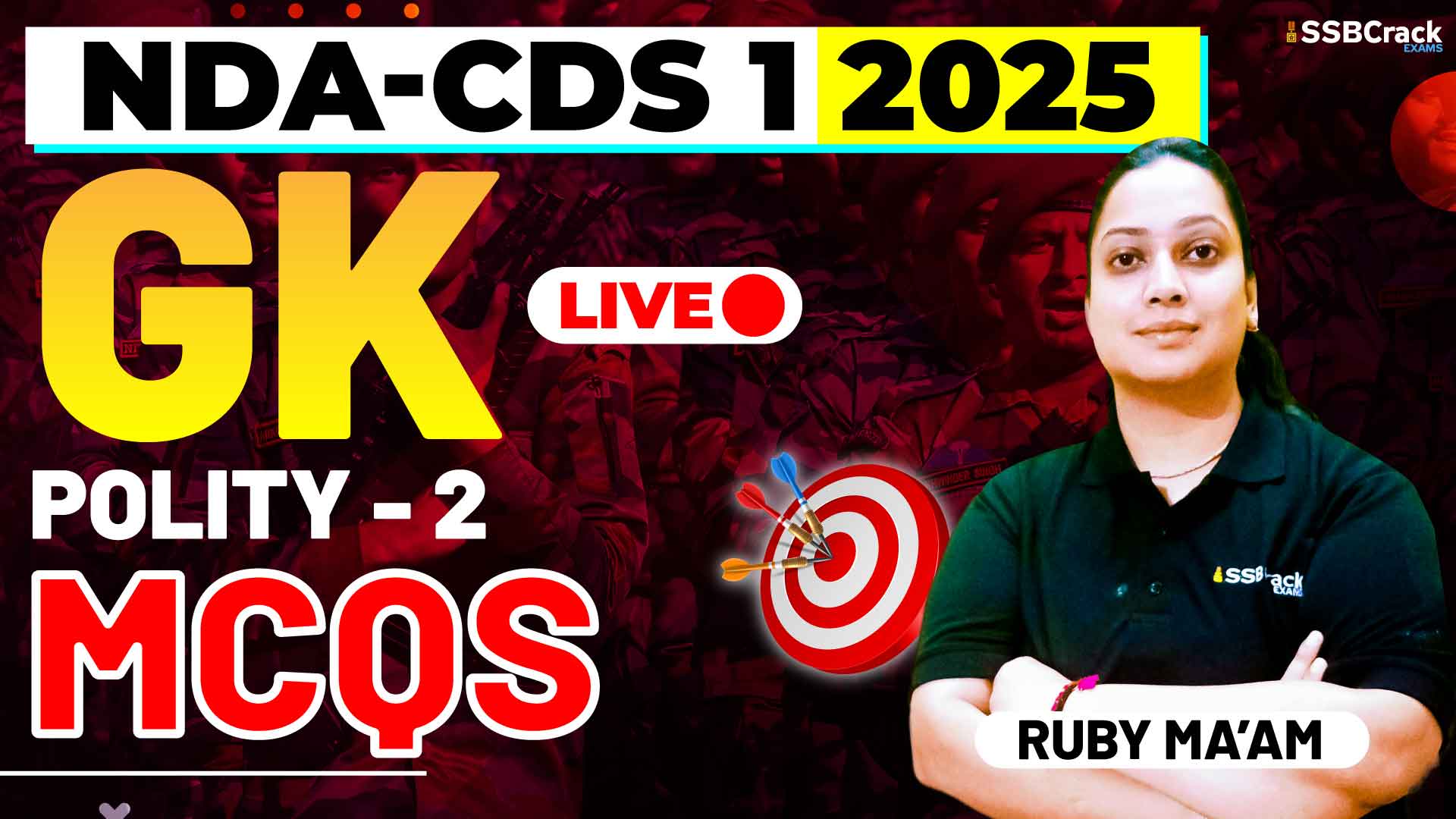Polity is one of the most crucial subjects in the NDA and CDS examinations conducted by the UPSC. Among the various topics in Polity, Fundamental Rights hold significant importance as they form the backbone of the Indian Constitution. Multiple-choice questions (MCQs) on Fundamental Rights are frequently asked in these exams, making it essential for aspirants to have a strong grasp of the subject.
Why Are Fundamental Rights Important in NDA & CDS Exams?
- Weightage in the Exam: Questions from the Polity section, particularly from Fundamental Rights, appear consistently in the General Knowledge (GK) paper of NDA and CDS exams. A good understanding of this topic can help candidates score better.
- Conceptual Clarity: Fundamental Rights are essential for understanding the rights and freedoms guaranteed to Indian citizens. They also play a crucial role in governance and democracy, making them relevant for future officers in the Indian Armed Forces.
- Interdisciplinary Relevance: Many Fundamental Rights have legal and historical significance, making them useful in understanding national security, law, and the role of the military in a democratic framework.
- Direct Application in SSB Interviews: Knowledge of Fundamental Rights can help candidates perform better in the interview process and group discussions during the SSB (Services Selection Board) interview.
Common Types of MCQs on Fundamental Rights
- Direct Concept-Based Questions: These MCQs test a candidate’s knowledge of the articles related to Fundamental Rights. Example: Q: Which Fundamental Right prohibits discrimination on grounds of religion, race, caste, sex, or place of birth? (A) Article 14 (B) Article 15 (C) Article 16 (D) Article 17
(Correct Answer: B – Article 15) - Application-Based Questions: These questions assess how well candidates can apply their knowledge of Fundamental Rights to real-life situations. Example: Q: If a citizen is denied employment in a government office on the basis of caste, which Fundamental Right is violated? (A) Right to Equality (B) Right to Freedom (C) Right to Life (D) Right to Education
(Correct Answer: A – Right to Equality) - Landmark Case-Based Questions: The UPSC often asks about landmark Supreme Court judgments related to Fundamental Rights. Example: Q: In which landmark case did the Supreme Court rule that Fundamental Rights cannot be amended in a manner that affects their basic structure? (A) Golaknath Case (B) Kesavananda Bharati Case (C) Maneka Gandhi Case (D) Minerva Mills Case
(Correct Answer: B – Kesavananda Bharati Case) - Article and Provision-Based Questions: These questions require candidates to match Fundamental Rights with their respective articles in the Constitution. Example: Q: Which article of the Indian Constitution guarantees the Right to Freedom of Religion? (A) Article 19 (B) Article 21 (C) Article 25 (D) Article 30
(Correct Answer: C – Article 25)
How to Prepare for Polity MCQs on Fundamental Rights?
- Study the Constitution Thoroughly: Read and understand all six Fundamental Rights and their respective articles (Articles 12-35).
- Refer to NCERT & Standard Books: Books like M. Laxmikanth’s ‘Indian Polity’ provide a clear explanation of Fundamental Rights.
- Practice MCQs Regularly: Solve previous years’ NDA/CDS question papers and take mock tests to improve speed and accuracy.
- Understand Case Laws & Amendments: Landmark Supreme Court judgments and constitutional amendments related to Fundamental Rights should be studied.
- Use Mnemonics & Diagrams: Creating visual charts and mnemonics can help retain information more effectively.
Conclusion
Mastering Fundamental Rights in Polity can significantly boost a candidate’s performance in the NDA and CDS exams. With consistent practice of MCQs and a thorough understanding of constitutional provisions, aspirants can enhance their chances of success. Since Fundamental Rights form the core of India’s democratic values, a well-prepared candidate not only excels in exams but also gains essential knowledge for a career in the armed forces.







